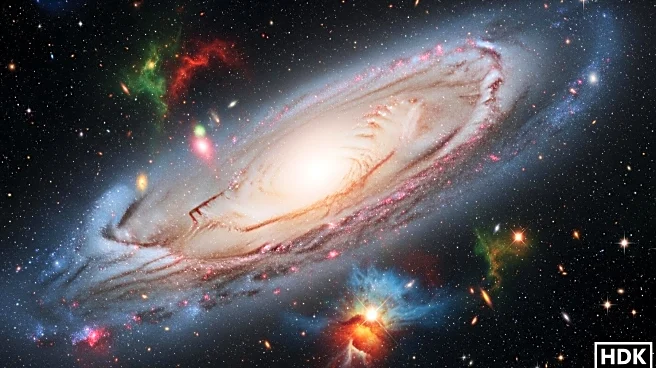What's Happening?
Astronomers have discovered a distant quasar, RACS J0320-35, that challenges existing theories of black hole growth. The quasar is growing at 2.4 times the Eddington limit, consuming massive amounts of matter equivalent to 3000 suns per year. This rapid growth could reshape our understanding of the early universe.
Why It's Important?
The discovery of RACS J0320-35 suggests that black holes can grow much faster than previously thought, potentially altering theories about the conditions required for massive black holes shortly after the Big Bang. Understanding these processes is crucial for comprehending cosmic evolution and the formation of galaxies.
What's Next?
Future research will focus on exploring similar phenomena to refine theories of cosmic evolution. Scientists aim to determine whether the quasar's growth is a sustained process or a short-lived phase, and how it relates to the production of powerful jets.
Beyond the Headlines
The discovery challenges existing models of black hole and universe evolution, suggesting that ordinary black holes might have grown significantly faster under suitable conditions. This could lead to a reevaluation of current theories in astrophysics.










